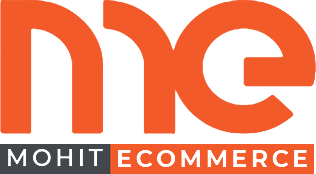In today’s fast-paced business world, it is vital to have efficient and effective supply chain management to maximize profits. One solution to achieving this is through supply chain finance, a strategy that has been gaining popularity in recent years. This innovative financial approach provides businesses with the necessary funds to optimize their supply chains and boost their bottom lines. Not only does it benefit companies financially, but it also strengthens relationships with suppliers and improves overall sustainability.
In this blog post, we’ll discuss the ins and outs of supply chain finance along with the secret to leveraging it for maximum profit. If you’re eager to revolutionize your business and increase your profitability, read on and discover how supply chain finance can be a game-changer for you.
Introduction to Supply Chain Finance
The supply chain is the backbone of any business, and managing it efficiently is key to maximizing profits. Enter supply chain finance, an emerging set of tech-based business and financing processes aimed at lowering costs and improving efficiency for all parties involved in a transaction. This revolutionary solution is gaining traction worldwide, with more than 50% of global trade revenue being attributed to it.
Through supply chain finance, suppliers and buyers can gain access to funds that they may not have been able to obtain otherwise, resulting in increased financial inclusion. In the following sections, we will explore the many benefits of supply chain finance, including real-world examples of its successful implementation, and reveal how this secret can help maximize your business’s profits.
Benefits of Supply Chain Finance to Suppliers and Buyers
Supply chain finance can bring numerous benefits to suppliers and buyers alike. One major advantage is the reduction of working capital investment to a bare minimum, allowing both parties to save on costs. Furthermore, the finance is based on the credit rating of the buyer, providing them with lower-cost funding. This translates to higher profits for suppliers as they are effectively guaranteed early payment.
Supply chain finance connects buyers and suppliers with financing institutions, streamlining the financing process and reducing risks. Suppliers also enjoy more control over the payment process, allowing them to more easily manage their cash flow. These benefits make supply chain finance a secure and efficient way for businesses to improve their financial operations.
Increasing Financial Inclusion with Supply Chain Finance
Supply chain finance offers a solution to unlock financing for small and medium-sized enterprises (SMEs), meaning it can help increase financial inclusion. By developing technology-driven low-risk products, supply chain finance can extend access to finance to SMEs who are critical to economic growth. With supply chain finance, businesses will be able to optimize their cash flow, because suppliers can receive early payments while buyers can negotiate longer payment terms.
The benefits to suppliers and buyers lead to a sustainable business relationship while reducing financial gaps faced by SMEs. Furthermore, it helps increase the productivity of the suppliers and the efficiency of the buyers’ working capital management. By implementing supply chain finance, businesses can revolutionize and maximize their profits while contributing to the broader financial inclusion agenda.
Examples of Successful Supply Chain Finance Implementation
As demonstrated in the previous sections of this blog, supply chain finance can bring a lot of benefits to both suppliers and buyers. However, it is understandable that some companies might be hesitant to implement this strategy. This is where successful examples of supply chain finance implementation come into play.
By examining companies that have already successfully utilized supply chain finance, businesses can gain a better understanding of how to implement the strategy while minimizing risks. For instance, in 2017, Swedish retailer H&M introduced a supply chain finance programme that settled supplier invoices early.

